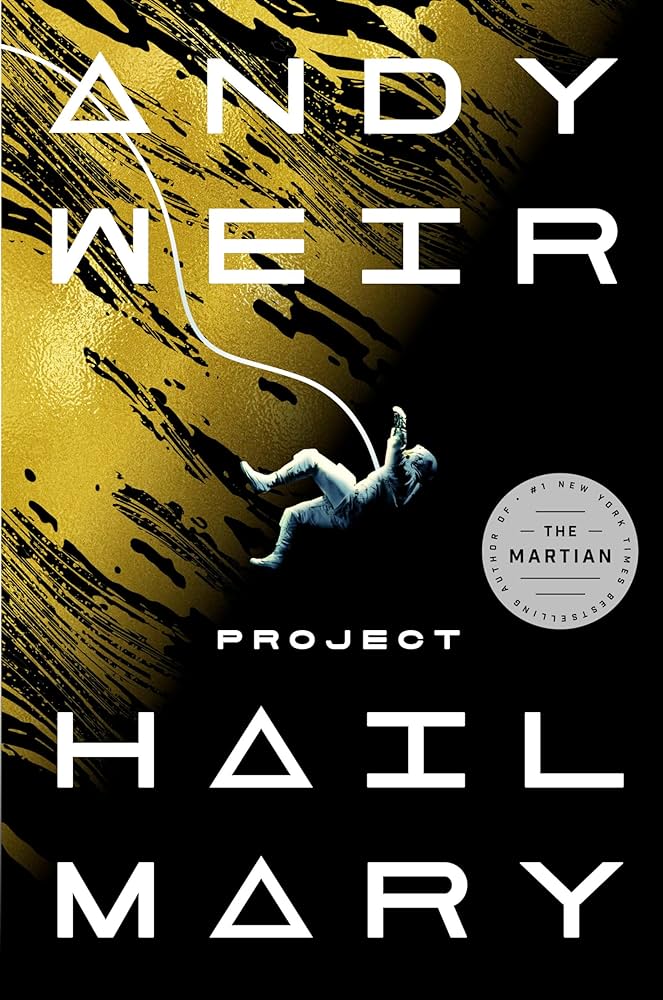Project Hail Mary

My science fiction era has begun. I picked up Project Hail Mary exactly five minutes after I dropped Blood of Hercules, so the bar was admittedly pretty low. However, this book surpassed any of my expectations, and dare I say, some of the brain cells lost during the Greek myth ‘retelling’ managed to grow back. Science fiction is still a really new genre for me, as I have only read Children of Time and The Three-Body Problem. But I managed to figure out that experimentation and technology was my favorite part of the experience. Good thing Project Hail Mary was filled with that!
I particularly enjoyed the way the novel was set up. The many goal was to save planet Earth, but the main character has to divide it up into many smaller missions to achieve this. He conducted detailed experiments in a logical way that is extremely fun to follow along. And the book only got better when the alien Rocky showed up! I was excited along with the main character as he made extraterrestrial contact for the first time, sending basic information through models of molecules, and finally breaking down the language barrier through music chords.
There were some scientific elements that stood out specifically to me. First off, Xenonite. How is this even a theoretical possibility? Noble gases aren’t reactive at all, so how would they interact with other atoms to form a metal? The idea itself is fascinating, even though I can’t even conceptualize how it would work practically. Astrophages are also very interesting organisms; what specific processes occur in the cell to convert electromagnetic radiation into ATP? How does the cell wall resist such high temperatures near the sun and the vacuum of space? In the story, it’s a beautiful thing that scientists all around the world worked together to analyze this organism, each poking and prodding to discover different things.
My first instinct after reading the book was to see what others thought about it, and I was surprised by the criticism that the writing style was informal and annoying in an internet-humor way. I did notice that the book was very conversational, but I think that helped the story; in this case, being poetic and wordy was not in style with the main character’s personality, and would have muddled the logical and scientific aspect of the book.
Overall, awesome book. I definitely want to read more science fiction like this in the future. Also, I think I’m going to stop rating books, because I’d rather just share my opinion qualitatively than try to summarize it into a gut-feeling number.